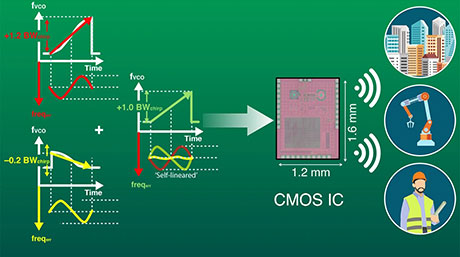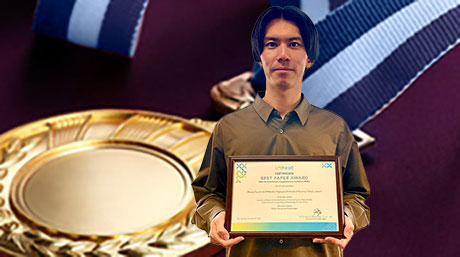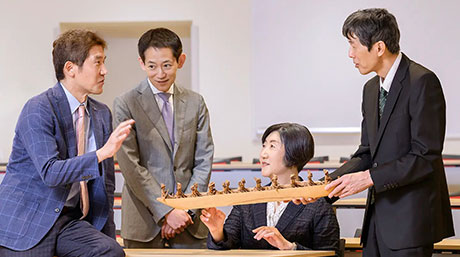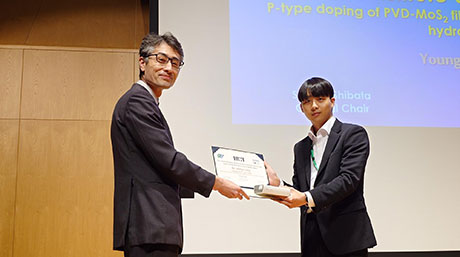Electrical and Electronic Engineering News
Outstanding Master Student Award in 2024! - Takaya UCHINO (Okada-Lab.) -
A Compact D-band Phase Shifter with 0.1-degree Phase Resolution and Ultra-Low Phase Error for 6G
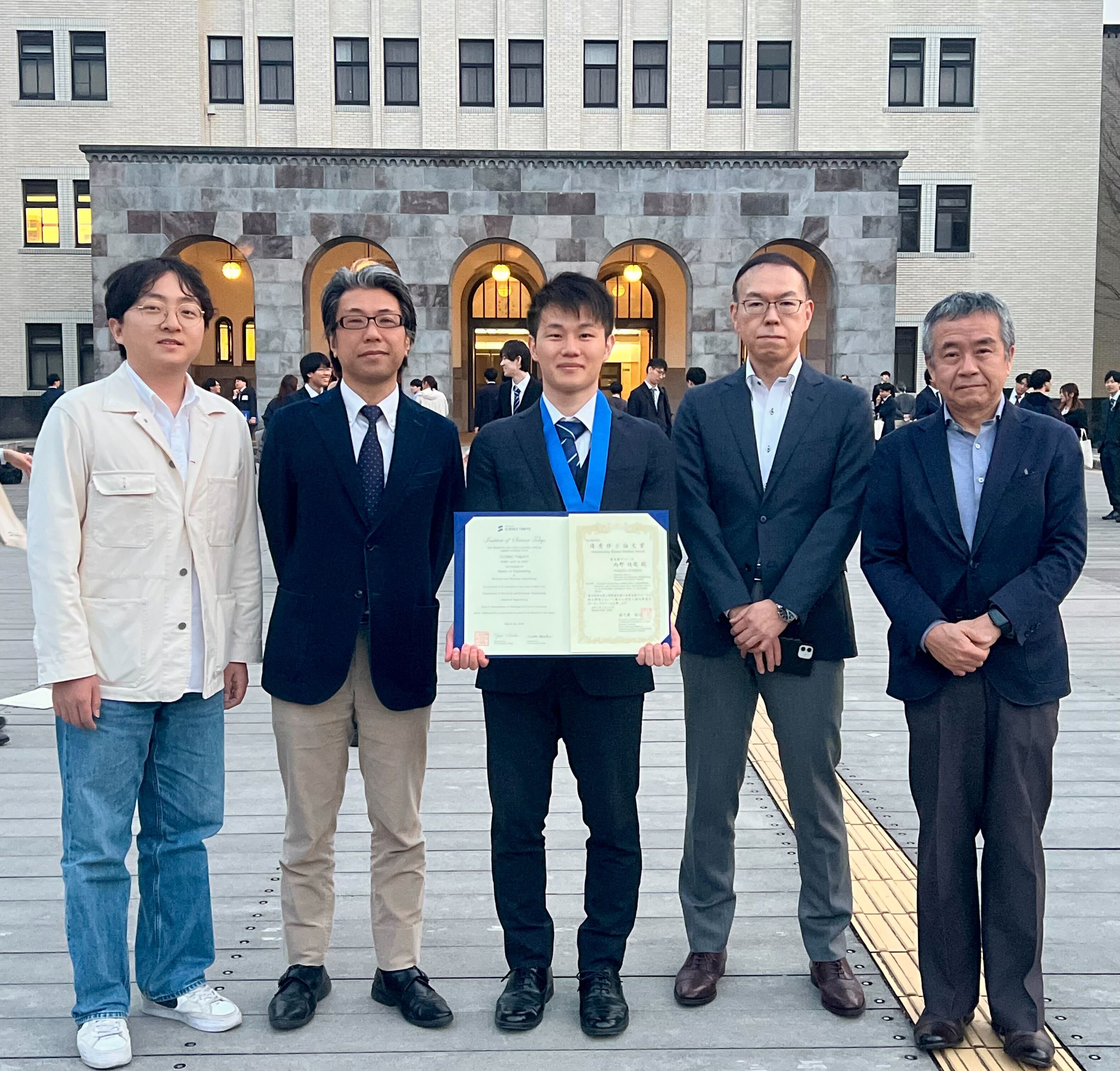
(From left) Assistant Professor Yuncheng Zhang, Professor Kenichi Okada, Mr. Takaya Uchino, Professor Kazuaki Kunihiro, Professor Hiroyuki Sakai
About my research
The recent increase in data traffic and the tightness of existing frequency bands have prompted the development of 6G, which uses millimeter-wave bands to achieve high-speed communications. In particular, the D-band (110-170 GHz) is considered one of the most promising candidate frequency bands for 6G because of its relatively low atmospheric attenuation.
For transceivers that use millimeter-wave band frequencies, high-speed communication is expected to be possible with parallel phased-array radios that use multiple antennas. However, the high frequency requires a very close distance between the antennas (approximately 1 mm at 150 GHz), which in turn requires compact, low-power-consumption integrated circuits. In phased array transceivers, the phase shifter's phase accuracy directly affects communication performance, but conventional phase shifters have problems. Passive phase shifters have low power consumption, but low phase resolution and high insertion loss. The active type has high phase resolution but has the trade-offs of high power consumption and large area.
To solve these problems, I proposed a new D-band phase shifter that combines active and passive types. The proposed circuit covers a phase range of 360 degrees with a fine phase step of 0.1 degrees and achieves a low RMS phase error. This circuit is expected to be applied to high-precision beam steering required by 6G. Furthermore, the low power consumption and small area of this circuit makes it possible to deploy it not only for base station but also for user equipment such as smartphones.
The most difficult part was to incorporate new ideas into the circuit. I not only accumulated knowledge by reading many papers and reference books but also discovered problems on my own and kept thinking over and over about how to solve them. In particular, the process of creating new ideas and giving shape to them through discussions with Professor Okada and others in the laboratory was a difficult one, but it was also the most enjoyable time. As a result, my idea was incorporated into a circuit, and I still vividly remember the moment when it worked properly through experiments.
Comments on the award
I am very honored to receive the outstanding master student award in 2024. I would like to express my sincere gratitude to my supervisor, Professor Kenichi Okada, as well as my laboratory professors, secretaries, and seniors who have supported me up to now. While it has been hard and busy at times, it has also been a very enjoyable and fulfilling journey as my research has progressed step by step. I would like to make the most of the experience and knowledge I have gained in the Okada Laboratory for the rest of my life.
